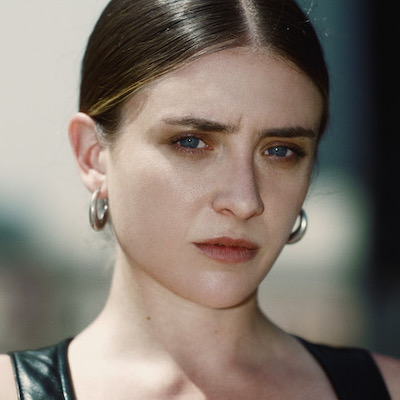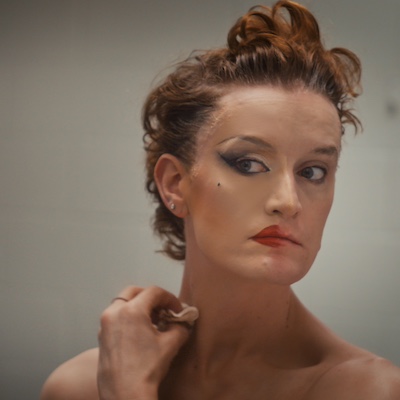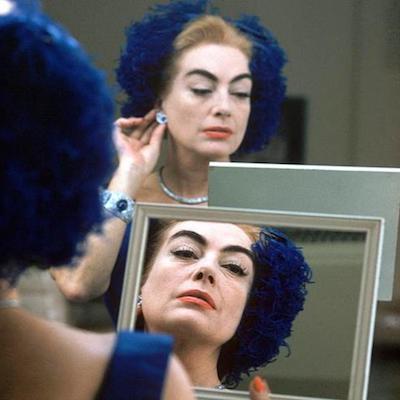
"Alyssa Edwards impersonates Joan Crawford, but really she’s imitating Erica Andrews, imitating Faye Dunaway, playing Joan Crawford via Christina"
To coincide with the epic BFI season on Joan Crawford, Loverboy contributor and Joan aficionado Matt Harris asks the question, was she an actress or just a camp icon?
Joan Crawford started her career as a body double for Norma Shearer in 1925, and within three years had become the archetypal flapper of the late 20s. She thrived through the transition into the sound era, becoming one of MGM’s highest-paid stars as she played a series of rags-to-riches roles in a dazzling array of Adrian gowns. Always ambitious, she branched out to play the bitch in The Women (1939) against the studio’s initial objections. Chafing at the poor roles later given to her at MGM, she left for Warner Bros for a stunning revival in her career fortunes that included winning a Best Actress Oscar for the sensational Mildred Pierce (1945). She made a series of great film noirs and melodramas in the late 1940s and 1950s, racking up two more Oscar nominations and reinventing herself while simultaneously harking back to her shop-girl roots. Later, her career saw yet another revival with the huge success of What Ever Happened to Baby Jane? (1962), spawning an entire “psycho-biddy” genre of faded actresses in horror films largely unworthy of their skills. Clearly, her place in cinema history is secure.
Yet, this is a world away from the Joan many know from Faye Dunaway’s screaming kabuki performance in Mommie Dearest (1981), beating Christina with a wire hanger and hacking at the rose garden with an axe. Dunaway’s performance has been parodied by countless drag queens over the years and it’s not hard to see why. These performances have now become so layered that the original Joan is lost almost entirely – in a recent RuPaul’s Drag Race series, Alyssa Edwards impersonates Joan Crawford, but really she’s imitating Erica Andrews, imitating Faye Dunaway, playing Joan Crawford via Christina.
Mommie Dearest (the book and film were both released in the years shortly after her death) is not popular with a lot of Joan’s fans, to say the least – it unarguably damaged her reputation for a whole generation. Recently, of course, she’s been brought to our attention again thanks to Jessica Lange’s portrayal in Ryan Murphy’s Feud, also a fun screaming camp-fest but with a bit more regard for historical detail. Some of Joan’s hardcore fans also hate what Ryan Murphy did to Joan, seeing Lange’s portrayal as reducing the great actress to a sad lonely drunk. In any case, it’s indisputable that Joan is often remembered through the lens of Faye Dunaway’s performance and many of Joan’s fans understandably see this as something of a travesty. Rather than being taken seriously as an actress, Joan is merely a camp absurdity to be laughed at, and she is clearly not in on the joke.
This isn’t the place for an extended essay on the definition of camp, but I do think there’s more to it than simply the “failed sincerity” that Susan Sontag famously claimed. Certainly, for example, Trog (1970) is camp: Joan approached her final film role with all the seriousness she gave to her Oscar-winning performance in Mildred Pierce twenty-five years earlier. Joan plays Dr. Brockton, a scientist who helps to uncover a “missing link” troglodyte. The film is a low-budget mess, well beneath the dignity of such a great star, which is of course why it’s hilarious.
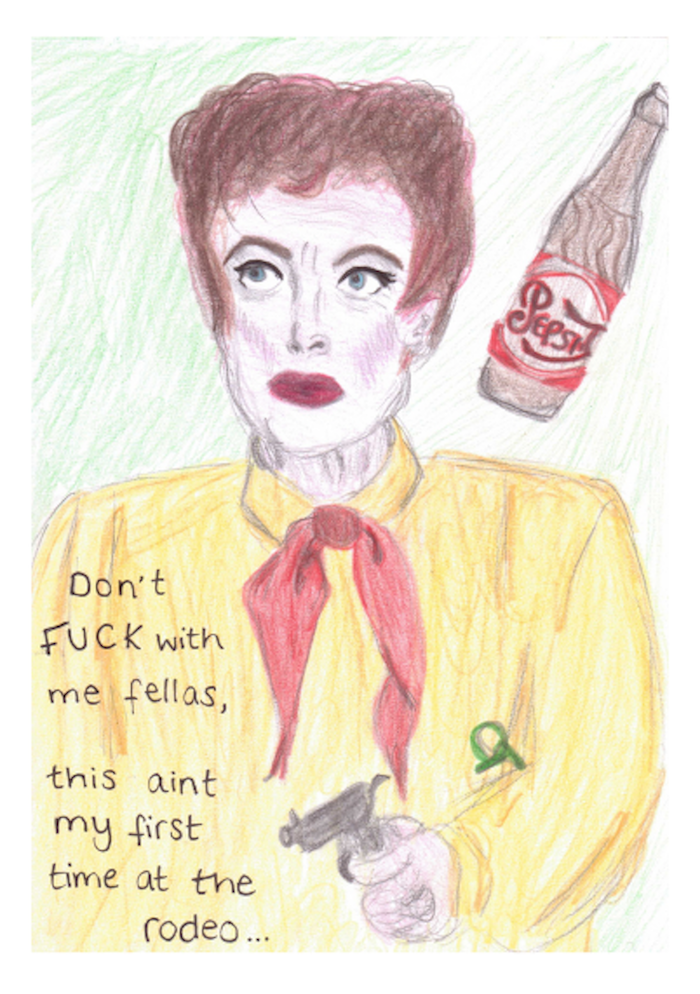
But what about a vastly superior film like What Ever Happened to Baby Jane? Is this camp? I think so, but that certainly doesn’t make it bad. Camp isn’t only reserved for cinematic atrocities like Trog. Some of the greatest films ever made, like Sunset Boulevard and All About Eve, have at the very least elements of camp (I’d argue they are *entirely* camp). This doesn’t detract anything from the fact that these works are masterpieces – Hollywood at its most self-aware, with everyone involved a master of their craft.
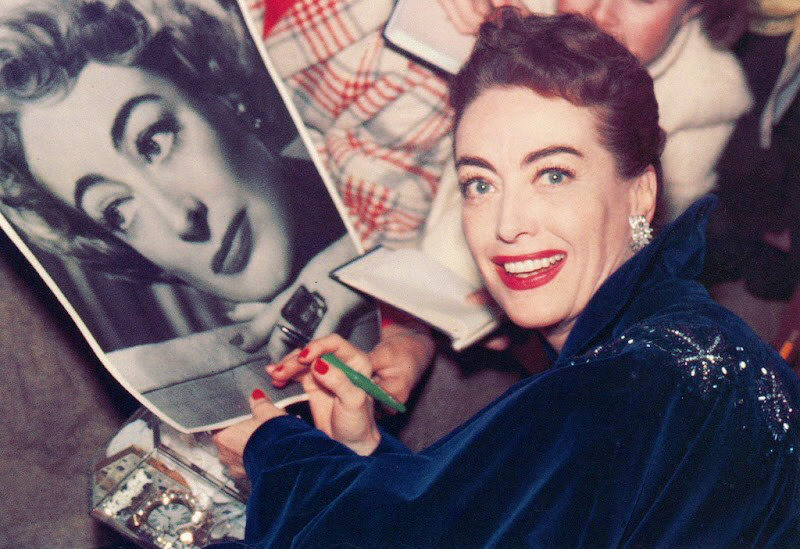
Baby Jane? is in some ways a ridiculous film that revels in its own Grand Guignol excess. But it’s also simply great, putting two of Old Hollywood’s greatest stars on screen together and showing that their careers were far from over. Bette Davis’ performance is rightly lauded (she got an Oscar nomination, Joan didn’t), but it wouldn’t work so well without Joan’s presence to balance her out.
Joan Crawford is one cinema’s great movie stars as well as one of its great actresses. She deserves a big screen as well as a big audience and I’m thrilled that she’s still getting both.
The BFI season Fierce: The Untameable Joan Crawford continues to run from August through September




